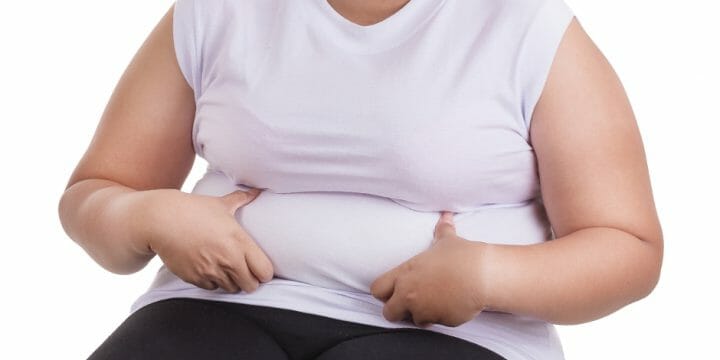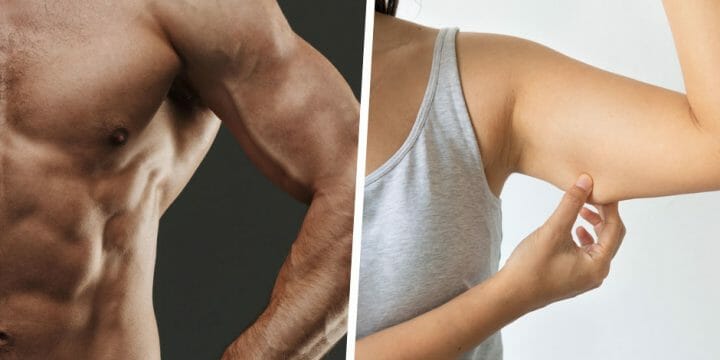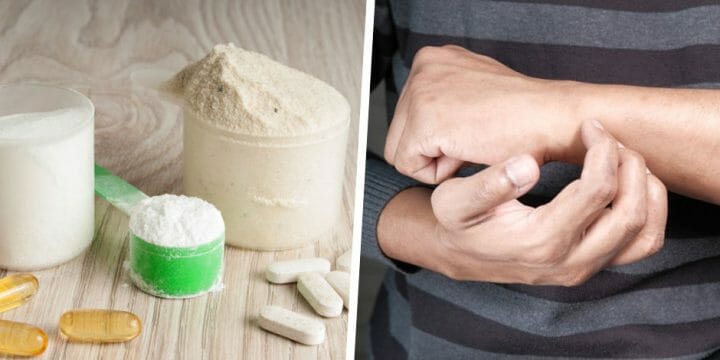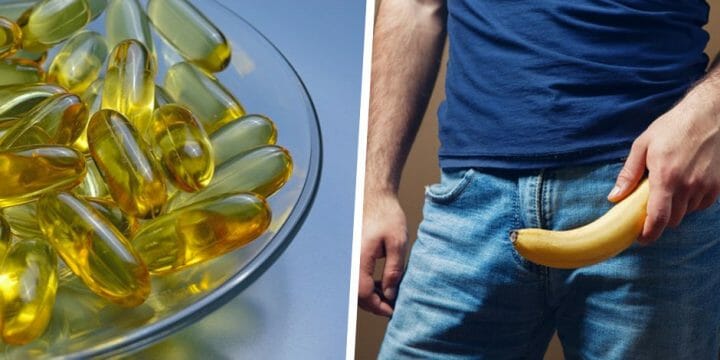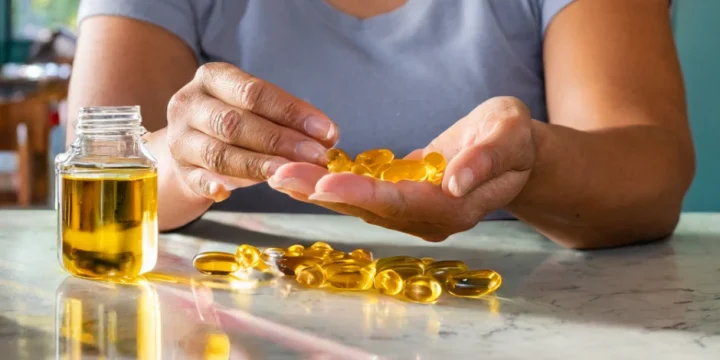I’m constantly working both with clients who follow my lead without question and those that ask why before carrying on.
I have found that those who understand the benefits of my training regimens and diet recommendations find it much easier to stay motivated and push themselves.
In my opinion, burning fat does not start with dieting; it begins with understanding how the process works.
So, I synthesized my knowledge, did some additional research, and compiled all the data that might be useful for beginners to grasp the process of fat-burning.
Let’s dive in.
Quick Summary
- The body burns fat by creating a calorie deficit, meaning consuming less energy than what is burned.
- A diet high in specific nutrients, like protein and certain fats, significantly enhances the body's ability to oxidize fat.
- Scientific studies published in PubMed suggest starting with a calorie deficit of 500 calories to initiate effective fat loss.
- In my view, understanding and maintaining a calorie deficit is the most crucial aspect of any successful weight loss journey.
How Does the Body Burn Stored Fat?
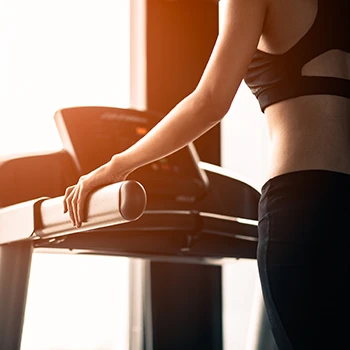
Body fat is burned through a process known as creating a calorie deficit, and a good calorie deficit count to start with, according to scientific studies published in PubMed, is 500 [1].
To initiate fat loss, a calorie deficit is essential - consuming fewer calories than burned.
This deficit triggers the release of fat from cells to mitochondria, the powerhouse of cells, where fat is oxidized to generate energy [2].
When you combine diet and exercise, two things happen; The body starts using the energy stored in fat cells and stops putting it away for fat storage.
The composition of our diet can significantly influence how effectively our body burns fat. Diets higher in certain nutrients, like protein and specific types of fat, can enhance the body's ability to oxidize fat, leading to more efficient weight management and energy utilization.
In my experience as a personal trainer, I've seen how a diet rich in protein and certain fats significantly boosts fat oxidation in my clients, leading to more effective weight management.
The byproducts of the fat-burning process, water, and carbon dioxide, are excreted from the human body through urine, sweat, and as you breathe [3].
Once the body uses fat cells for energy, these cells shrink but don't vanish.
Overeating high-calorie foods can cause these cells to expand again, making it challenging to maintain fat loss.
Consistently maintaining a calorie deficit is key to reducing body fat, as it ensures ongoing fat burning from stored fat.
Hydration is often an overlooked factor in fat burning. Adequate water intake is essential for efficient metabolism, including the process of lipolysis, where fats are broken down into usable energy, highlighting the importance of hydration in any weight loss regimen.
What Happens When You Exercise?
When I exercise with my clients, I notice their muscles initially burn stored glycogen for energy. It usually takes about 30 to 60 minutes before we start burning fat.
If you’re exercising moderately, it might take longer compared to if you’re on high-intensity workouts.
“After about 30 to 60 minutes of aerobic exercise, your body starts burning mainly fat.”
- Bartolome Burguera M.D., Ph.D. & Chairman of Endocrinology & Metabolism Institute (EMI)
After you go through most of your glycogen stores, the brain signals fat cells to release fatty acids bound in triglyceride form. Both eating fewer calories and exercising causes the human body to release energy stored in the fat tissue.
Experts recommend combining cardio with strength training exercises. Strength training builds muscle, and muscle tissue aids in burning calories. In fact, the muscle is one of the biggest calorie consumers in the body, according to the Progress in Cardiovascular Diseases [4].
Related articles:
Where Does Fat Go When You Lose Weight?
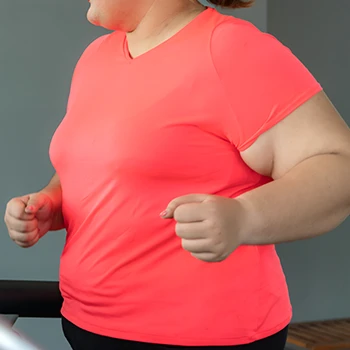
During weight loss, fat breaks down into water and carbon dioxide, which are expelled through breathing, sweat, and urine.
In my training experience, exercise accelerates fat expulsion. As clients burn fat, their fat cells shrink, visibly altering their body composition.
However, these cells don't disappear but can expand if calorie intake increases again, accommodating excess energy.
It might go far and start depositing fat cells on organs such as the liver and muscles, according to the research published in PubMed [5]. These fat cells are collectively known as “visceral fat”, and this tends to be the most dangerous type of excess fat the body stores.
Related article: What Breaks Down Fat In The Body?
FAQs
How Does Fat Leave Your Body?
Fat leaves your body after undergoing a series of complex metabolic processes, leaving the fat cell empty. The byproducts of the breakdown are water and carbon dioxide.
The water is passed through the skin when you sweat, through the kidneys when you urinate, and the carbon dioxide is via the lungs when you breathe.
How Do You Know Your Body Is Burning Fat?
You know that your body is burning fat when you start losing appetite, when your clothes fit differently, and when you begin noticing muscle definitions.
Other signs that you’re burning fat include; an improved sense of well-being and changes in the frequency of bathroom visits.
How Do You Get Your Body to Burn Stored Fat?
To get your body to start burning stored fat, start by decreasing your calorie intake to create a calorie deficit, then start exercising or do both simultaneously.
As for exercise, you need to combine strength training and cardio exercises to burn fat to the maximum.
In addition, you need a healthy amount of sleep (7-9 hours) and follow a high protein and fiber diet.
Will You Start Burning More Fat When Dieting?
Evolution has devised complex mechanisms to store and burn fat. But now that you understand the science behind it, it should be easier to take action.
The most important takeaway is what you need to do to start burning fat more efficiently, and that's a calorie deficit, nutritious food, and exercise.
And to help speed up things, I advise all my clients consider taking a high-quality fat burner based on natural ingredients.
Over the years we tested some of the best fat burners which brought excellent results. Here are our recommended supplements:
These are not magic pills, but many proved to be quite effective in our testing, so make sure to check out our guide and see what they can do for you.
References:
- https://pubmed.ncbi.nlm.nih.gov/28765272/
- https://pubmed.ncbi.nlm.nih.gov/20548301/
- https://health.clevelandclinic.org/where-does-body-fat-go-when-you-lose-weight/
- https://www.ncbi.nlm.nih.gov/pmc/articles/PMC3925973/
- https://pubmed.ncbi.nlm.nih.gov/17144882/
About The Author
You May Also Like
